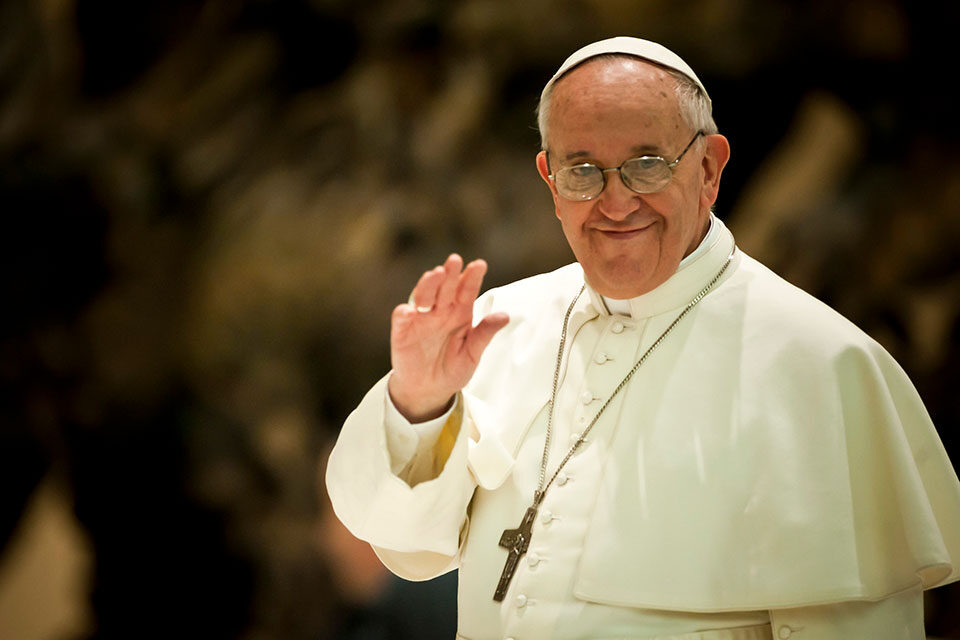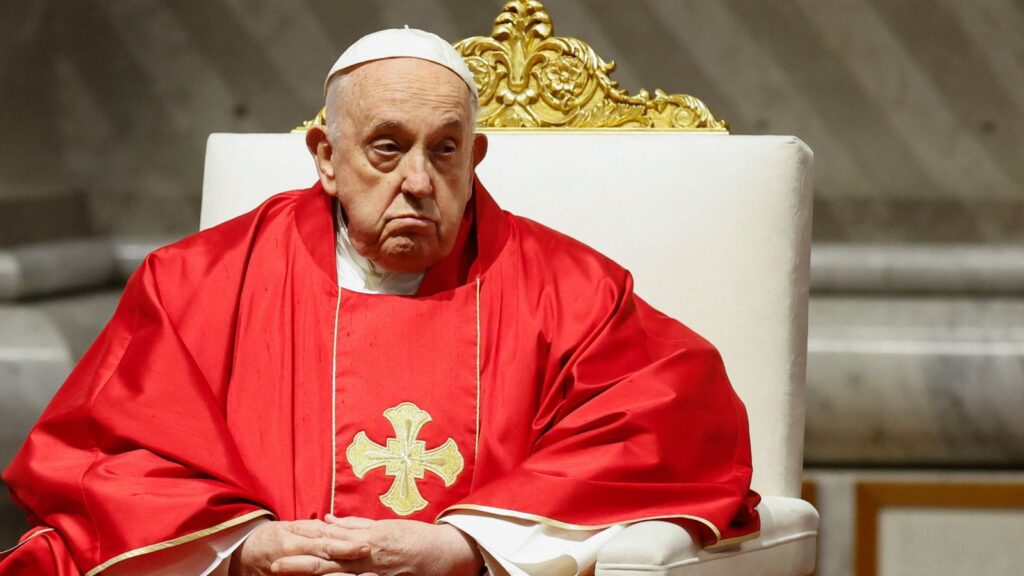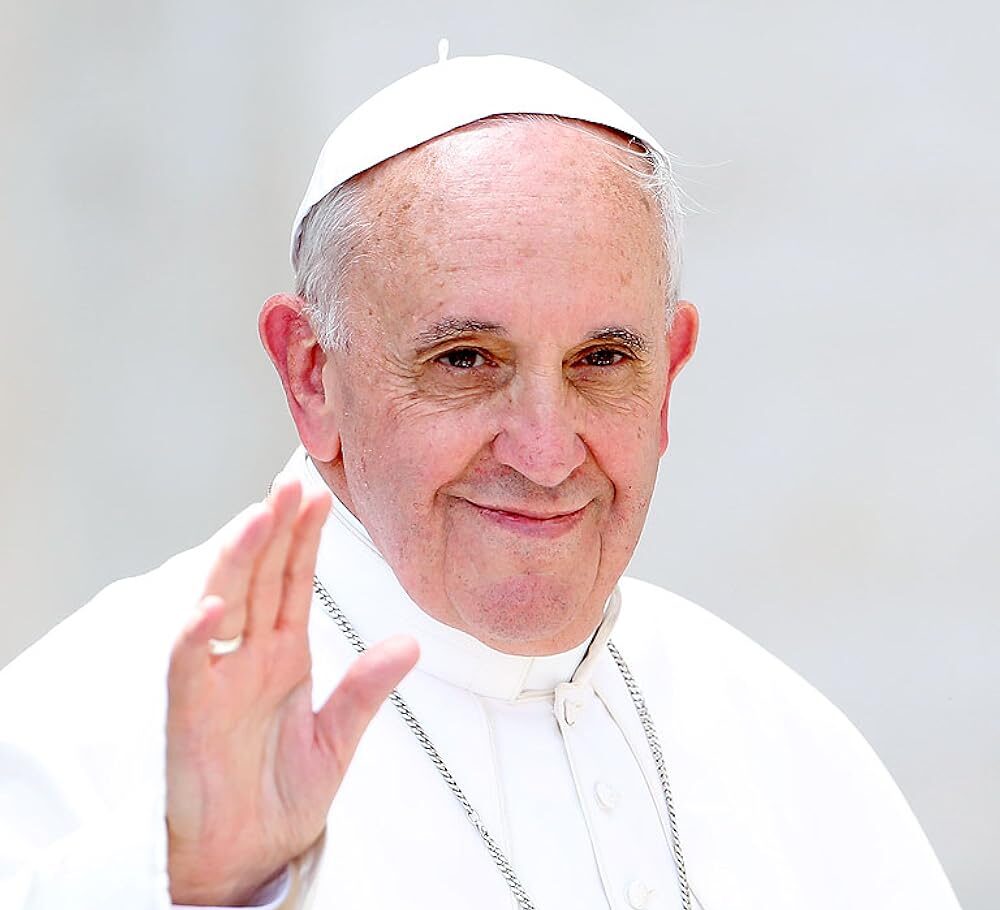Vatican City, April 21, 2025 — Pope Francis, the first Latin American pontiff and a transformative figure in modern Catholicism, died Monday morning at the age of 88. The Vatican confirmed his passing in a solemn statement by Cardinal Kevin Farrell, who described the pope as a “true disciple of the Lord Jesus” whose life was dedicated to serving the marginalized and fostering global unity.
A Life of Humility and Service
Born Jorge Mario Bergoglio in Buenos Aires, Argentina, in 1936, Francis rose from humble beginnings as the son of Italian immigrants to become one of the most influential religious leaders of the 21st century. His early life was marked by hardship, including a life-saving lung surgery at age 21 after a severe respiratory infection—a procedure that left him vulnerable to chronic health issues later in life.

Ordained as a Jesuit priest in 1969, Bergoglio’s leadership was forged during Argentina’s brutal military dictatorship (1976–1983). Though critics accused him of insufficient opposition to the regime, colleagues defended his behind-the-scenes efforts to protect persecuted priests 10. His reputation for humility deepened during his tenure as Archbishop of Buenos Aires, where he famously rode public buses, cooked his own meals, and lived in a modest apartment instead of the archbishop’s palace.
A Revolutionary Papacy
Elected pope in 2013 following Benedict XVI’s resignation, Francis shattered centuries of tradition. He became the first Jesuit pontiff, the first from the Americas, and the first to take the name Francis—honoring St. Francis of Assisi, the patron saint of the poor and ecology. From the outset, he signaled a new era by rejecting papal luxuries: opting for a used Ford Focus over a bulletproof limousine, living in the Vatican guesthouse instead of the Apostolic Palace, and wearing a simple iron cross.
His papacy was defined by a relentless focus on social justice. He condemned unbridled capitalism as “the dung of the devil,” called climate change a moral crisis in his groundbreaking encyclical Laudato Si’ (2015), and advocated for refugees, calling their mistreatment a “sin against humanity” 16. A champion of the poor, he urged the Church to “smell like the sheep” and prioritize outreach over dogma. His famous refrain—“Who am I to judge?”—softened the Church’s tone toward LGBTQ+ individuals, though he stopped short of endorsing same-sex marriage.
Challenges and Controversies
Francis’ progressive vision faced fierce resistance from conservative factions. Traditionalists bristled at his reforms, including restrictions on the Latin Mass and his openness to granting Communion to divorced Catholics. U.S. Cardinal Raymond Burke once likened his papacy to a “ship without a rudder,” while Australian Cardinal George Pell condemned it as a “catastrophe”.
The clergy sexual abuse crisis also shadowed his tenure. While Francis abolished “pontifical secrecy” rules shielding abusers and mandated accountability for bishops, survivors’ groups criticized his pace of reform as insufficient 10. Yet his personal humility disarmed critics. When asked about conservative backlash, he replied, “I pray the Lord settles their hearts—and even mine”.
Final Days and Legacy
Francis’ health declined sharply in early 2025. Hospitalized in February for bronchitis that progressed to double pneumonia, he spent 38 days at Rome’s Gemelli Hospital—the longest papal hospitalization in modern history 811. Despite labored breathing and reliance on a wheelchair, he delivered his final Easter blessing on April 20, urging peace in Gaza and Ukraine 35. He died the following morning at his Vatican residence, Casa Santa Marta.

Tributes poured in globally. Indian Prime Minister Narendra Modi praised him as a “beacon of compassion,” while Ukrainian President Volodymyr Zelenskyy thanked him for “praying for peace” 7. U.S. Vice President J.D. Vance, who met Francis hours before his death, recalled his “beautiful” COVID-era homilies.
A Simplified Farewell
True to his ethos, Francis requested a stripped-down funeral. Breaking with tradition, his body will lie in a simple zinc-lined coffin rather than three nested caskets, and he will be buried in Rome’s Basilica of St. Mary Major—the first pope in over a century interred outside the Vatican.
A Lasting Impact
Pope Francis’ legacy is one of radical empathy. By appointing women to senior Vatican roles, welcoming LGBTQ+ Catholics, and challenging global powers to address inequality, he redefined the papacy for a new era. Yet his greatest achievement remained his unwavering focus on the marginalized. As a champion of the poor, he reminded the world that “the excluded are not a ‘policy issue’—they are living, suffering souls”.
In death, as in life, Francis’ message endures: a call to build a Church—and a world—“that is poor and for the poor”.
Sources:
Vatican News – Pope Francis has died on Easter Monday aged 88 (Official Vatican announcement)
Reuters – Reactions to the death of Pope Francis (Global tributes from world leaders)
Los Angeles Times – Pope Francis, beloved for his humility and compassion, dies (Overview of his life and legacy)
Forbes – Pope Francis Has Died At 88, The Vatican Says (Health decline and final days)The Guardian – Pope Francis: tributes paid after head of Catholic church dies aged 88 (Controversies and reforms analysis)

